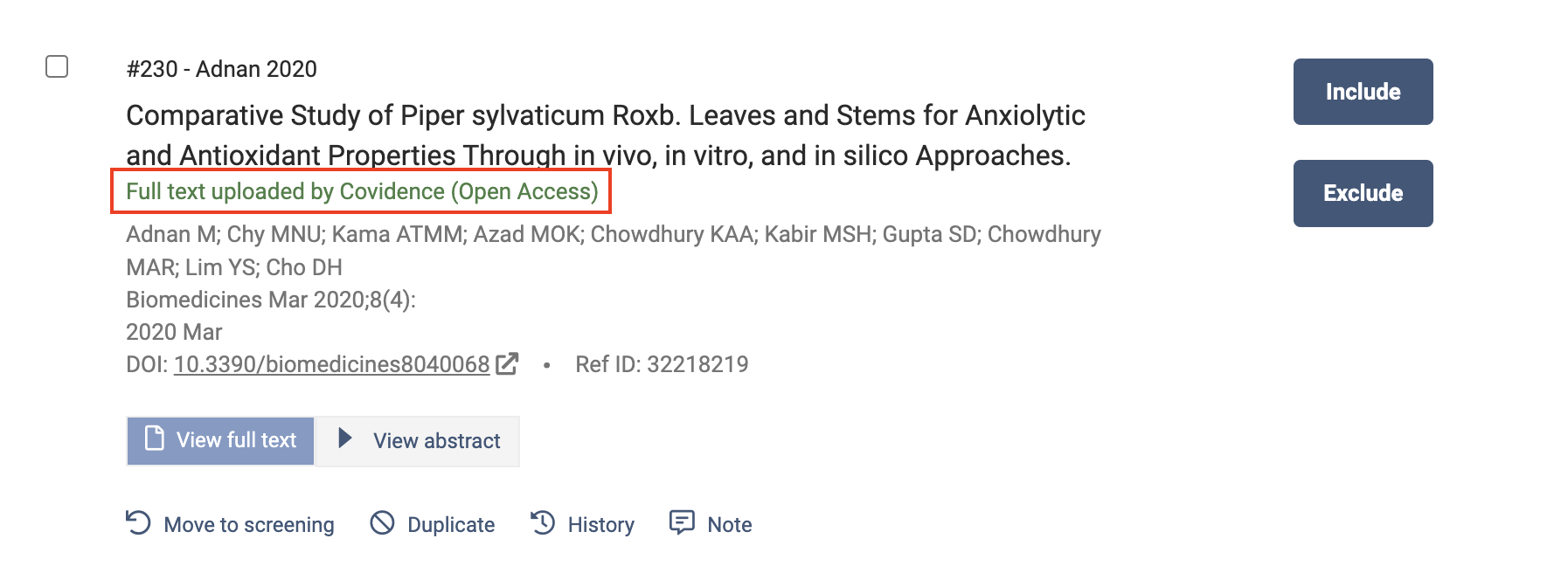Importing references
How to import Open Access references
Last updated on 27 Oct, 2025
This article describes how Covidence retrieves Open Access full texts to help save reviewing teams time through screening.

Studies moving from title and abstract to full text screening
When a study moves from title and abstract to full text screening we will use the DOI associated to the study to try to retrieve the full text. This means that a DOI must be associated with the reference on import, otherwise Covidence can't check if it's Open Access and whether a PDF is available to upload.
We are using Unpaywall to retrieve the PDF. In a small amount of cases the study is Open Access but there isn't a PDF available for Covidence to upload.
Don't forget, you can start screening these immediately by using the filter feature and filtering by studies which have full texts uploaded.
Note: For any study which was in full text screening prior to the 7th April 2022, we will not try to retrieve the Open Access PDF.
Importing studies to full text or data extraction
If you import studies directly into full text or data extraction we will use the DOI to upload an open access PDF if one is available. We will upload the Open Access PDFs after a reference import, so there will be a small delay on these being uploaded depending on how many studies you have imported whilst we go through each study and check if an Open Access PDF is available for upload.
Again, for Covidence to upload the PDFs the reference must contain a DOI when importing and in a small amount of cases although the study is open access, Unpaywall might not have a PDF available for Covidence to upload.
It isn't possible to turn off the automatic retrieval of PDFs in Covidence. If you do not want Covidence to retrieve PDFs automatically, we recommend that you leave the DOIs out of data you export from your reference manager software.

